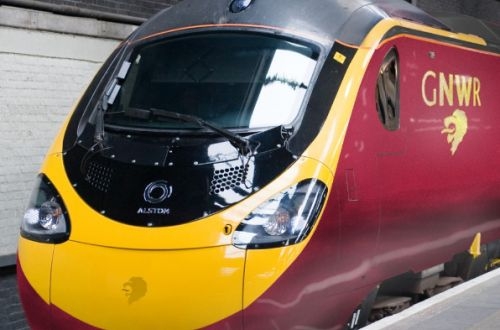GNWR sought access rights until 2027 and planned to lease a fleet of eight new six-car Alstom Pendolino EMUs to operate six daily off-peak return services from London to Blackpool from May 2017 and six daily off-peak services from London to Leeds via Huddersfield from December 2018. Alliance had previously sought a more extensive track access agreement which also included services to Bradford and Carlisle but this was rejected by the ORR in December 2013 due to concerns around capacity constraints at the southern end of the WCML.
While several freight and passenger operators expressed concerns that there might be insufficient capacity at the southern end of the WCML to accommodate GNWR, infrastructure manager Network Rail (NR) told the ORR that the proposed services could be accommodated with better use of existing capacity, particularly after reworking of the timetable.
NR's decision to back the application was on the basis of the Northern Hub project to increase rail capacity in the Manchester area and the electrification of the Manchester Victoria – Huddersfield – Leeds Trans-Pennine route. However timetable modelling indicated that running a sixth hourly fast train would have significant negative impacts on punctuality on this line and NR suggests reduced signalling headways would be required to accommodate this level of traffic.
ORR says that this could be included in an expanded electrification scheme, but with impacts on the cost, timing and scope of a project already facing delays beyond its planned 2018 completion date.
The Department for Transport (DfT) raised concerns during the consultation that GNWR's proposals could have a negative impact on the revenues of the Inter-City West Coast (ICWC) franchise operator Virgin Trains, potential compromising its ability to meet franchise payments agreed in its contract with the government.
ORR carried out a five-stage analysis of the GNWR proposal to establish whether the services would draw revenues away from franchised services, the so-called not primarily abstractive (NPA) test. This suggested that any loss of revenue to the franchised operator would be offset by growth in the overall market brought about by competition.
However, ORR says the application scored less well in other areas of the test and the overall score fell short of the threshold required for approval. Furthermore, with concern over the impact of additional fast services on the Trans-Pennine route and delays to electrification ORR refused the application.
"We are naturally disappointed with the ORR's decision, especially as we reached agreement with Network Rail in May last year that there was sufficient capacity to operate these trains on the West Coast Main Line and across the Pennines," says GNWR managing director Mr Ian Yeowart. "The ORR's reasons came as something of a surprise, particularly as GNWR was told last July that forecasts of generation from the first part of the NPA test were relatively high compared with previous open access applications that have been approved by the ORR."

